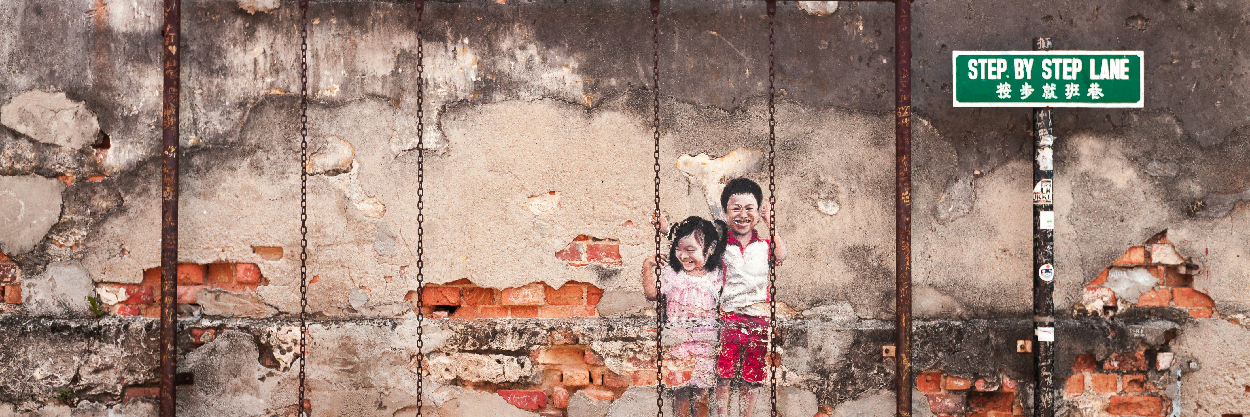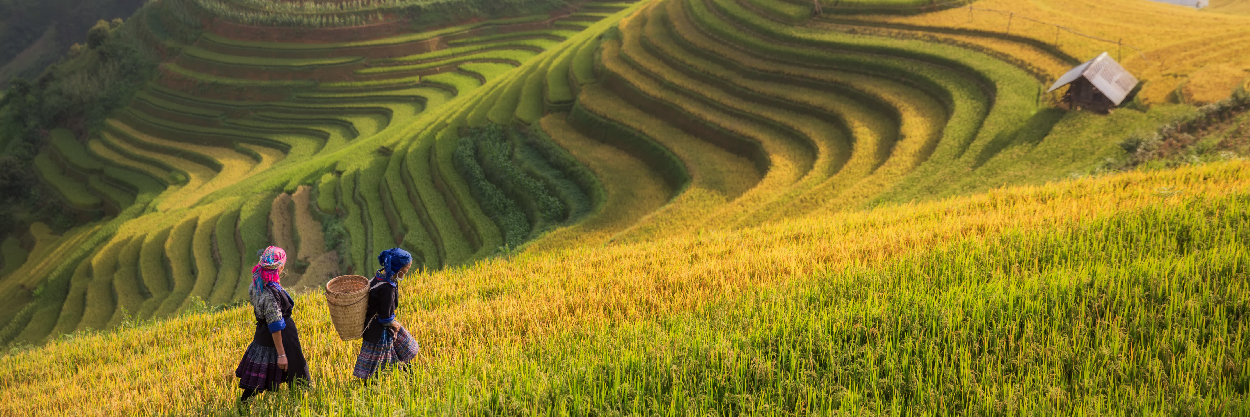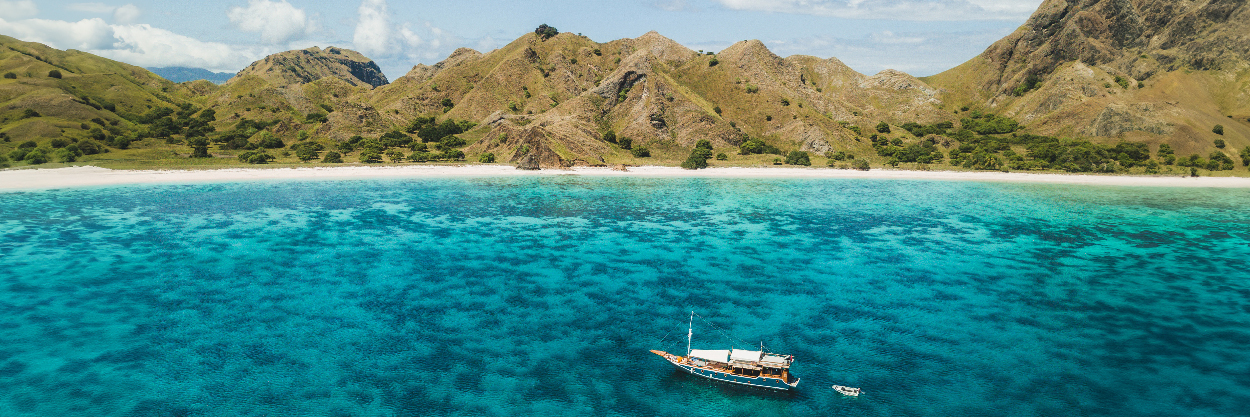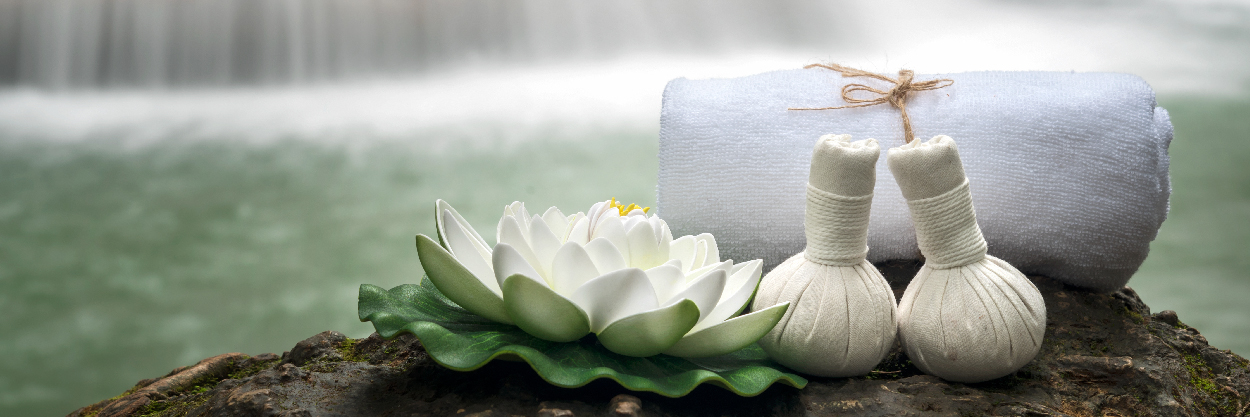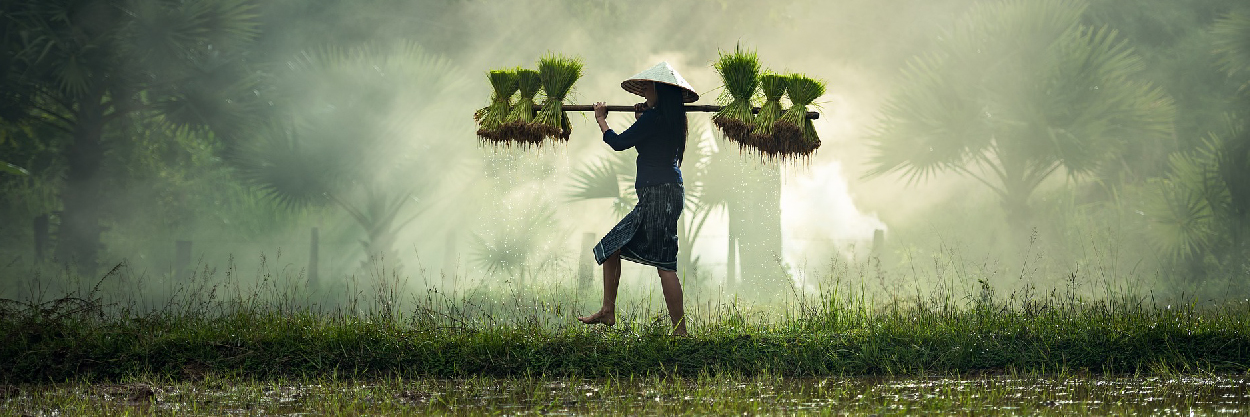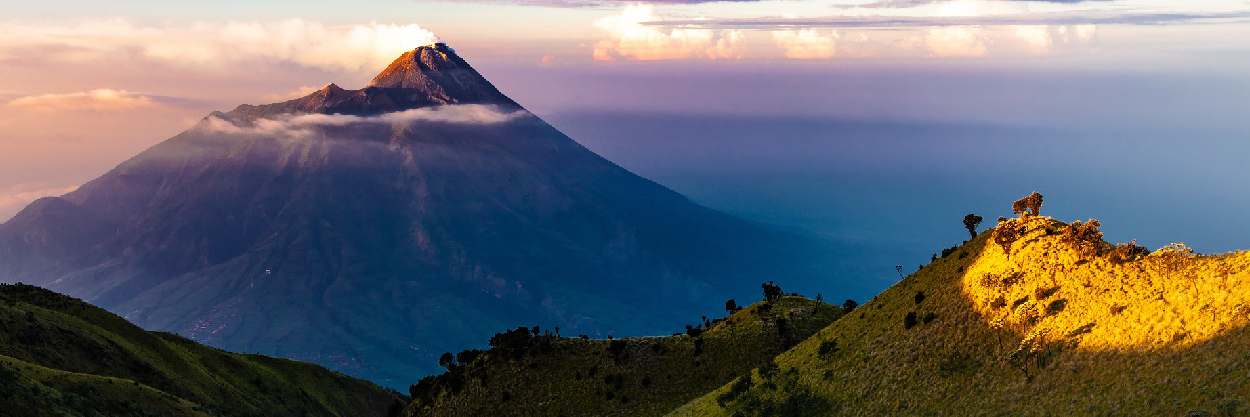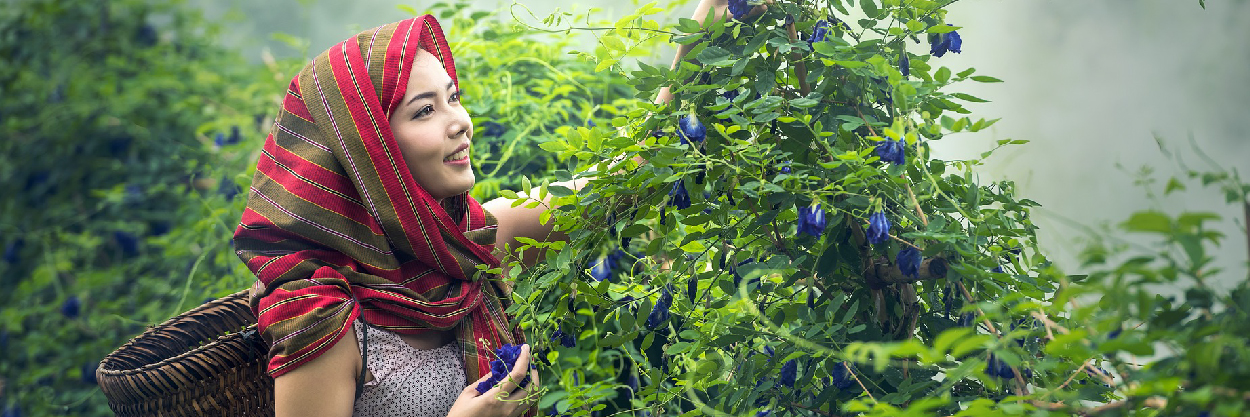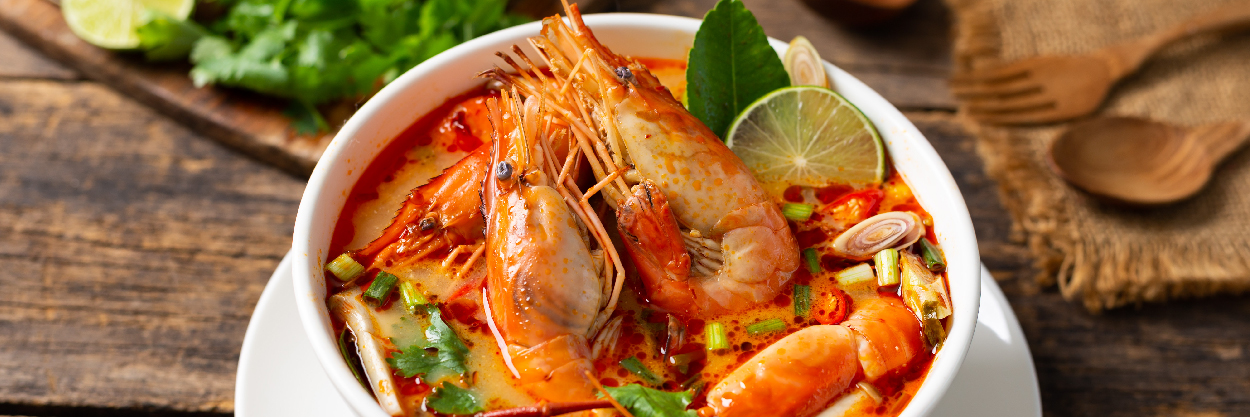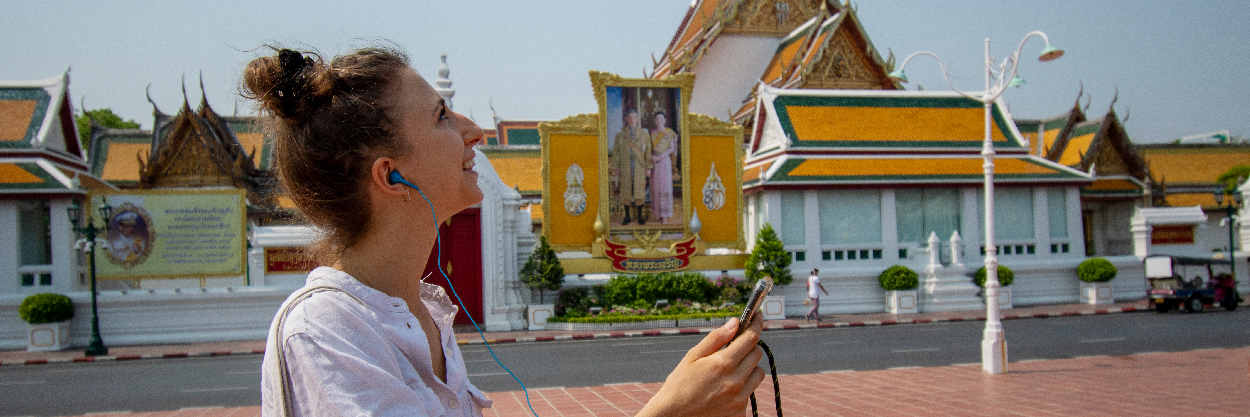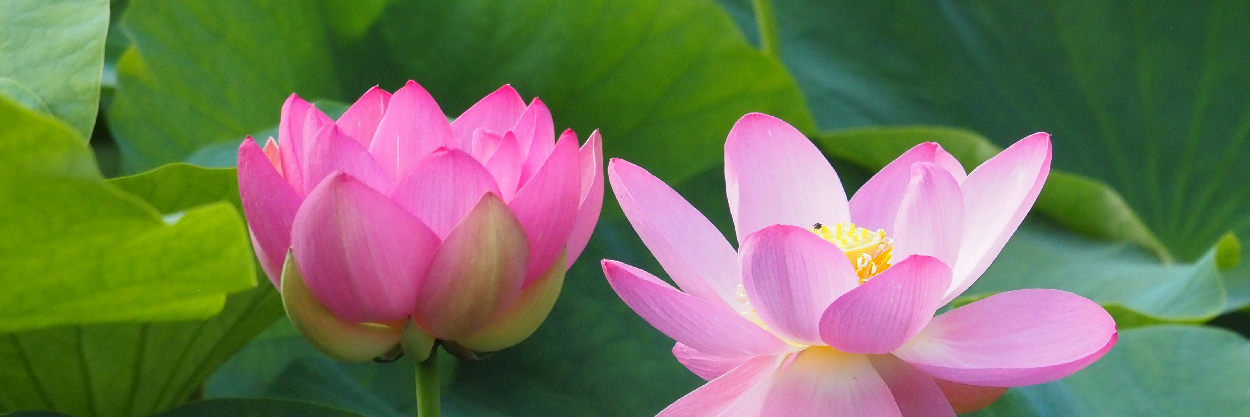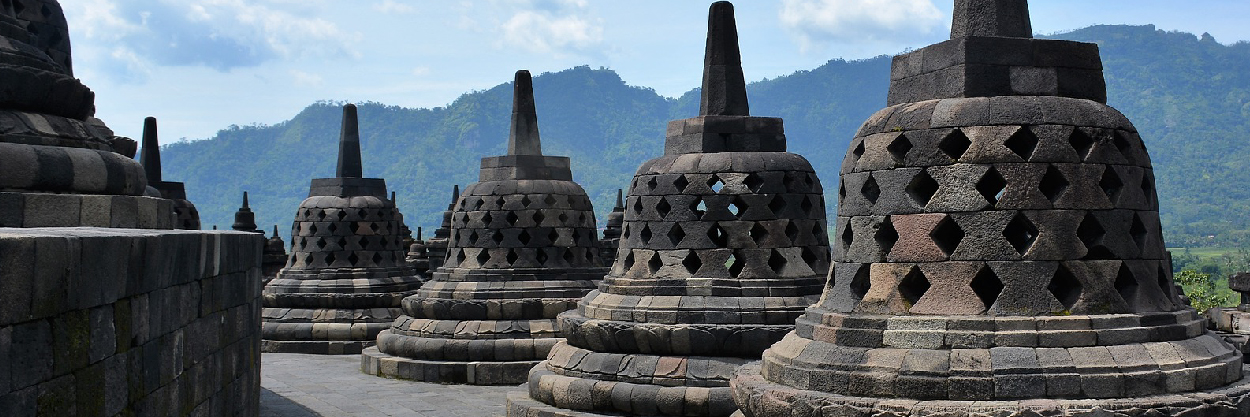Vietnam
Fast Facts
Visa-free |
|
Tourist visas |
All other visitors require a visa to visit Vietnam. Standard tourist visas can be obtained from the Vietnamese embassy or a consulate at the port of departure. Visas are usually valid for up to 30 days. Fees and processing times vary. Required documents:
Note: It is recommended to check the visa stamp when collecting your passport as some travellers receive a single-entry visa despite requesting multi-entry. Multiple entry visas can also be arranged on arrival. |
Visa-on-arrival (VOA) – with a pre-approval letter |
Before arriving in Vietnam, travellers who wish to apply for a visa-on-arrival (VOA) must first obtain a VOA Approval Letter. Contact Asian Trails Vietnam for assistance.
Asian Trails will submit the VOA pre-approval application to Vietnamese authorities on the traveller’s behalf. Once the pre-approval has been processed, the traveller will receive a VOA Approval Letter, which should be presented at the airline check-in counter when preparing to board the flight to Vietnam. Without this letter, the airline may deny boarding. Please note:
|
Documents required for VOA pre-approval |
To obtain VOA pre-approval, Asian Trails requires the passport and flight details for each traveller, including:
On arrival in Vietnam, travellers should present the following documents at the visa-on-arrival counter:
|
All the above information may change without prior notice. It remains the traveller’s responsibility to check visa requirements before travelling.
Time zone |
GMT+7 |
Language |
Official language: Vietnamese Many people in the major tourist destinations speak some level of English and can engage in basic communication with tourists. Some Vietnamese people can also communicate in French. |
What to pack |
|
Electricity |
The standard voltage in Vietnam is 220V (50Hz).
|
Phone & internet |
A local sim card is easily available at the airport or from a local service provider. An extensive 3G/4G network is in place and covers most urban areas. |
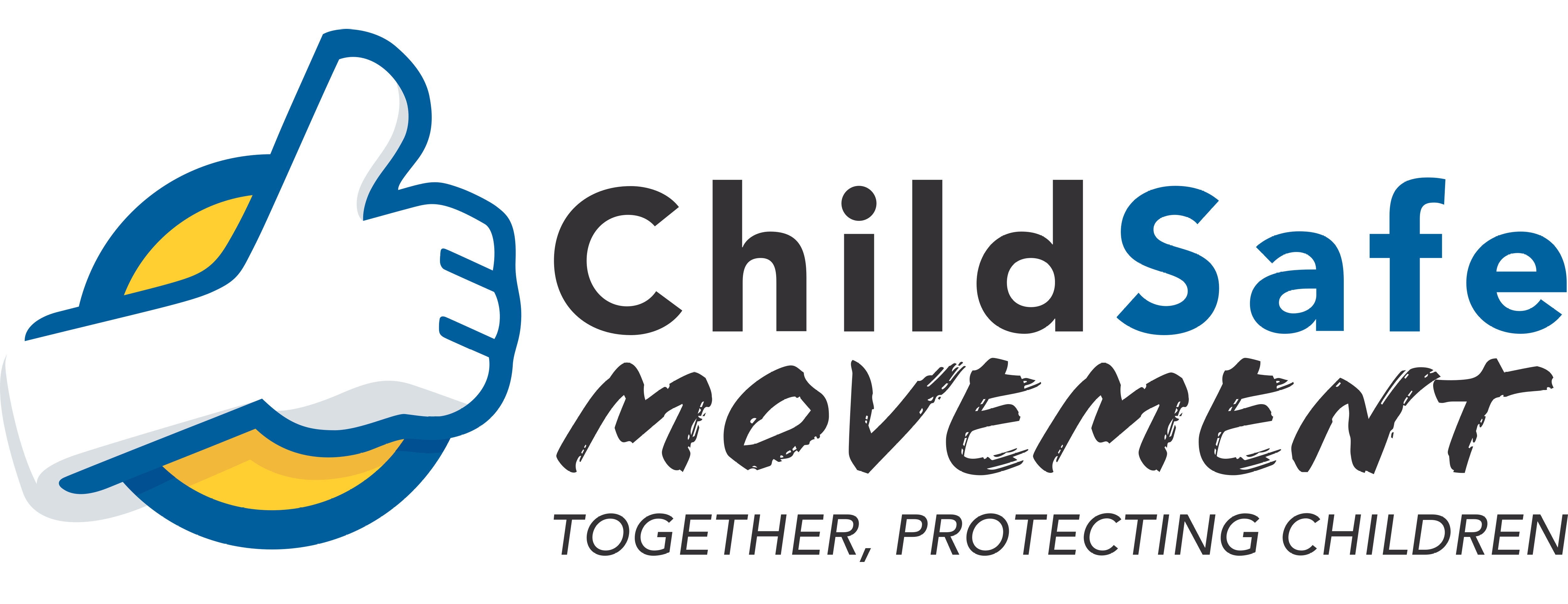 |
Asian Trails is a proud partner of ChildSafe. Learn more about keeping children safe while travelling with these 7 Tips for Travellers. |
Do |
|
Don’t |
|
Currency |
Official currency of Vietnam: Vietnamese dong (VND) US dollars are commonly accepted in larger shops, restaurants and hotels throughout the country. Cash can be exchanged at banks, exchange bureaus and some hotels. ATMs that accept foreign cards are widely available. |
||||||||
Banking hours |
Usual banking hours are:
|
||||||||
Credit cards |
Visa and Mastercard are widely accepted in the major cities. If travelling to more remote areas, it is recommended to carry cash in the local currency. | ||||||||
Tipping |
While not compulsory, gratuities are expected in Vietnam. Many in the travel and service industry are accustomed to receiving a small amount for good service. Please consider the following as a guide to common practice, although tipping and the amount to tip is always at the discretion of the individual.
|
Domestic flights |
This is often the fastest and most convenient way to travel between the major cities, such as from Hanoi to Hue; from Da Nang to Nha Trang; and from Nha Trang to Ho Chi Minh City. |
The Reunification Express |
The national railway system spans the entire length of Vietnam’s coast and connects many of Vietnam’s major cities. The entire journey from Hanoi to Ho Chi Minh City takes more than 30 hours. Options range from third-class hard seat to air-conditioned cushioned seat or sleeper. It is recommended to book train tickets several weeks in advance, especially for weekend travel and in the summer. Asian Trails can help with the arrangements. |
Taxis |
In the major cities, it is usually easy to find a metered taxi. They can be flagged down on the street or booked through hotels or restaurants. Rides can also be booked via the Grab mobile app or the local equivalent known as Xanh SM, which offers environmentally friendly rides in electric vehicles. |
Boats |
This slow travel mode is one of the best ways to explore the Mekong Delta region in the South or Northern Vietnam’s Halong Bay. |
Public bicycles |
In Ho Chi Minh City, public bicycles can be rented on an hourly basis, offering an eco-friendly mode of exploration and an interesting perspective of the city’s quieter roads and lanes. |
Religion |
Buddhism is the dominant religion in Vietnam usually combined with elements of Confucianism and Taoism. About 10 per cent of the country’s population is Catholic and there are also communities of Protestants and Muslims. Vietnam is also home to a unique religion called Cao Dai – a religious cocktail of all the world’s major faiths. |
Food |
One of the greatest delights in Vietnam is dining out and enjoying a cuisine that is rapidly gaining recognition on a global scale. Profoundly influenced by the national cuisines of France, China and Thailand, Vietnamese cooking is highly innovative and makes extensive use of fresh herbs, including basil, coriander, lemon grass, parsley and lime.
Common local dishes:
|
Shopping |
The big cities Ho Chi Minh City and Hanoi have the best choice when it comes to shopping. Shops open from 8 am or 9 am and close any time between 6 pm and 10 pm. Most shops are open seven days a week and many are open later on weekends.
Most towns and cities have one or more markets that are worth visiting for a cultural retail experience. It is common to bargain when buying items from a market stall. Remember to keep the conversation light-hearted and fun (a smile really does help!) What to buy:
|
Vaccinations |
There are currently no vaccine requirements, although it is advisable to be up-to-date with standard inoculations, such as:
Consult your doctor for the most appropriate medical advice. If you require a particular medication, ensure that you pack an adequate supply, as it may not be available locally. |
Drinking water |
Avoid drinking tap water in Vietnam. Bottled mineral water is easy to find at convenience stores around the country. Ice cubes are usually safe if served at a hotel or restaurant, but best avoided at street stalls and in remote parts of the country. |
Safety |
Vietnam is a safe country to visit. However, it is advisable to take some precautions to safeguard your belongings:
|
Insurance |
Travellers are advised to obtain appropriate insurance to cover any accidents or medical emergencies while travelling. In some cases, treatment will not be administered without proof of travel insurance. Ensure that your plan covers motor vehicle accidents if you intend to hire a car or motorbike. Emergency evacuation cover is highly recommended as you may have to fly out of the country for treatment. |
Emergency numbers |
|
This information was valid at the time of publication and it is subject to change at any time. We cannot be held responsible for any external links. You acknowledge, by your use of this site, that you use it at your own risk and that Asian Trails shall not be liable for any damages of any kind related to your use of this site, or the information contained within. We reserve the right to correct any errors, inaccuracies or omissions and to change or update information at any time without prior notice.








